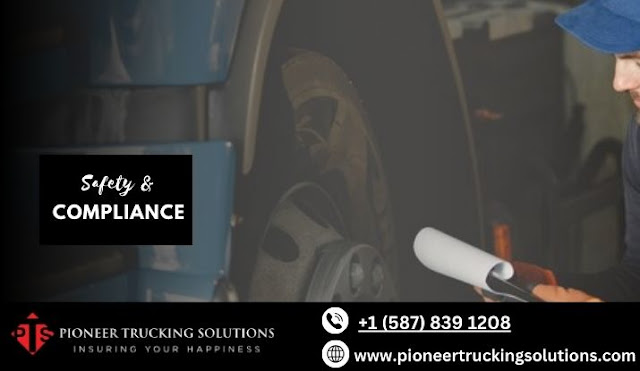Our economy depends heavily on the movement of products and services across the nation, which is accomplished by commercial vehicles. However, ensuring the safety & compliance of these vehicles is of utmost importance to protect both drivers and other road users. For that, we are here with this blog through which truckers will get to know about effective ways to enhance the safety of commercial vehicles on the road. By implementing these measures, companies can promote a culture of safety, reduce accidents, and maintain regulatory compliance. Regular Vehicle Inspections: Perform routine inspections of commercial vehicles to identify any mechanical issues or maintenance requirements. This includes checking tires, brakes, lights, signals, and other critical components. Addressing these issues promptly can prevent breakdowns and accidents on the road. Driver Training and Education: Invest in comprehensive driver training programs that cover safe driving practices, defensive driving...





.jpg)
